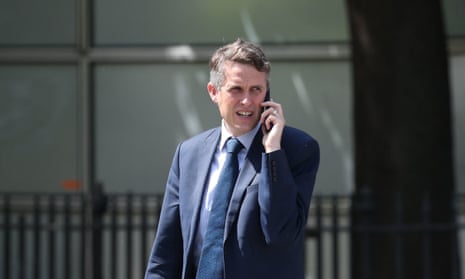No one doubts that the events arising from the Covid-19 pandemic can legitimately be described as unprecedented. But unfamiliar circumstances are no justification for weak national leadership. Particularly when it comes to education, there has been an apparent absence of contingency planning by the government, and inept strategic management. Across the country, it is school and college leaders who have had to pick up the pieces.
Since the start of lockdown, these education leaders have devised and implemented – with the support of their staff – extensive family and learner support, access to free school meals, systems for remote learning, on-site provision for vulnerable and key-worker children, and the empathetic management of the results fiasco with its profound impact on individual students.
School and college leaders have been unstinting. Many have worked without a break since lockdown in March, through the Easter holiday and May half-term, developing entirely new ways to meet the needs of their communities. Throughout this extremely difficult period, the Department for Education (DfE) has exhibited an almost total disregard for their expertise, professionalism and working lives.
On many occasions, the DfE made decisions without any consultation with the nation’s education leaders. Perhaps the urgency of the situation has limited the possibility of dialogue, but there is no doubt the quality of decision-making suffered as a result. And even when school and college leaders were consulted, through their representative bodies, time and again the DfE seemed unable or unwilling to take their advice on board.
Take the proposals to reopen primary schools to all pupils, and the use of moderated teacher judgments for exam grades: on both these issues, clear expert advice was provided but disregarded by the government. When professional organisations representing tens of thousands of educational leaders indicate their concerns, this should be viewed as constructive and informed criticism rather than adversarial opposition.
The lack of consultation was followed repeatedly by the government making public announcements on key decisions, such as the closures of schools and issues around exam outcomes, without any attempt to alert or advise school and college leaders in advance.
It wasn’t just that school and college leaders faced the challenge of responding within minutes to parents and pupils eager to know the implications. These announcements were, in many cases, made public before Gavin Williamson’s department had any guidance available on their implementation.
In a crisis or otherwise, the ideal route for any major education policy change should be: consult, prepare advice, brief leaders, and make a clear public announcement. Instead, during the pandemic we have seen the government ignore the advice of experts, then make a hurried announcement, then dither; and it all culminating with school and college leaders being left to mop up the ensuing problems. The impact has been even more pronounced given the scale of government U-turns in recent months.
Meanwhile, most school and college leaders do not have any contractual entitlement to holiday leave – it is down to the discretion of the governing bodies of specific schools. They are used to taking time off as and when the pressures of the job allow. They understand that their summer holiday barely extends into August. The preparation and distribution of results at this time is a key responsibility alongside all the staffing, premises management, and financial and timetable planning over the summer. And yet, this year more than any other, there has been total disregard of the need for school and college leaders to be afforded adequate restorative time off.
The DfE’s key planning documents for the September opening of schools were not available until after the end of the summer term. On several occasions, pivotal policy announcements and essential guidance documents were issued – for immediate action – at weekends. And no one in the DfE seems to register the working-life implications of making major policy announcements in the late afternoon or early evening. At the end of a full day’s work, school and college leaders have found themselves picking up the pieces of critical policy changes with no prior notice.
Throughout the pandemic, the publication and distribution of guidance for school and college leaders has been farcical. It is readily accepted that guidance would need to be revised and updated as understanding around coronavirus unfolded and circumstances altered. But the guidance has been unfathomable. Extensive documentation has been changed without any means of tracking those developments: new documents have been published with no dates and no version numbers. It is often almost impossible to discern which guidelines may have changed. Documents arrive without adequate understanding of the many and variable types of school – urban comprehensives, rural primary federations, residential special schools, state boarding schools and many more. There has been barely any recognition that England’s school and college buildings are among the most overcrowded in Europe, with some of the largest average class sizes in the developed world.
No competent school or college leader would propose major changes without workplace consultation. Nor would they make recommendations without awareness of the circumstances in which their teams work. They put the wellbeing of their staff and students at the forefront of considerations, making sure any changes in approach are clearly communicated. In all these areas, the government has been found wanting.
Dignity or disregard? It’s time for the education minister and the DfE to decide which of these is to be the basis for its future work with school and college leaders. So far during this pandemic, it has been entirely the latter.
Robin Bevan is an experienced headteacher, at Southend High School for Boys, Essex since 2007. He serves as the newly elected national president of the National Education Union
